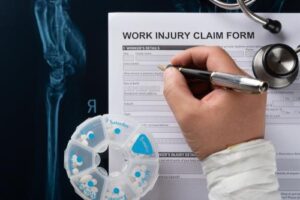
Going above the speed limit is incredibly risky behavior. When a driver speeds, they can lose control of their vehicle or be unable to avoid hazards. Tragically, this can lead to an accident with serious consequences.
If a speeding driver caused your accident, it can be overwhelming. You probably have medical bills, missed income, and more to handle. But if you weren’t at fault, you shouldn’t have to pay. Seeking representation from an Atlanta car accident attorney like John Foy and Associates can help ensure you get the compensation you deserve.
Let John Foy & Associates help you get the compensation you deserve. We’ll discuss your case and your legal options. To learn more during a free consultation, call (404) 400-4000 or contact us online.
The Dangers of Going Over the Speed Limit
Speed limits exist for a reason: to protect everyone on the road. When someone ignores the posted speed limit, they risk everyone’s safety. Governing bodies set speed limits based on factors like:
- Road design
- Flow of traffic
- Nearby landscapes
- Visibility
- Residential or urban areas
Speeding killed 9,378 people in 2018, according to the National Highway Traffic Safety Administration (NHTSA). When speeding doesn’t kill someone, it can leave them with life-altering injuries. At the very least, this type of car accident is expensive.
Get the strong arm
Consequences of Speeding
Going over the speed limit affects a driver by:
- Making it harder to control their vehicle
- Increasing the car’s stopping distance
- Making protective equipment less effective
- Increasing the risk of severe damage during a crash
But a speeding driver is not thinking about these consequences. They make choices that put themselves and others at risk—even if they aren’t trying to cause harm.
If another driver caused your accident, you have the right to hold them responsible. You can seek compensation for your losses through a personal injury claim. If you have questions about getting started, reach out to a personal injury lawyer in Atlanta.
Drivers Must Follow State Speed Limit Laws
Speed limits vary by state and area. Here are the maximum traveling speeds in Georgia according to the Georgia Driver’s Manual:
- 30 mph in urban or residential districts
- 35 mph on unpaved county roads
- 70 mph on rural interstates
- 65 mph urban interstates or on multi-lane divided highways
- 55 mph in all other areas
These limits can change based on temporary or permanent conditions. Drivers should be careful to watch for changing speed limits. They should also adjust their speed based on changing road or weather conditions under Georgia Code § 40-6-180.
A Super Speeder is anyone convicted of:
- Speeding 75 mph or above on two-lane roads, or
- Speeding 85 mph or above on any Georgia road.
Super Speeders face a $200 state fee and other local fines. If the driver doesn’t pay the fee, they can face a license suspension and another fee.
Proving that the Driver’s Speeding Caused an Accident
To file a claim for financial recovery, you must prove that:
- The other driver was negligent in your accident.
- You have personal injury damages from the accident.
Exceeding the posted speed limit is negligent behavior. “Negligence” is a legal term for a lack of care. When someone goes over the speed limit, they are not thinking about the safety of others.
If the other driver caused your accident, you can file a personal injury claim with their insurance company. But you’ll need to show how the driver’s actions led to your accident and damages.
The driver could have been negligent in ways other than speeding. Our lawyers will investigate the accident to show what happened. To discuss the details with an experienced attorney, call (404) 400-4000 for a free consultation.
Building Your Car Accident Claim
You’ll need to gather evidence of the accident and your damages for your claim. Be aware that the insurance company will probably challenge your claim. They’ll try to offer you a settlement that is way lower than you deserve.
A lawyer can help build your claim by:
- Getting a copy of the accident report
- Gathering information from the scene
- Talking to eyewitnesses
- Working with accident reconstruction experts
- Getting footage from any traffic cameras
- Compiling bills, receipts, and other documents
Our lawyers will use the above information to strengthen your case. If the insurance company tries to take advantage of you, we’ll be ready to help. We are not afraid to stand up to insurance companies.
The goal is to get you the fullest settlement possible.
Damages to Recover in a Speeding-Related Car Accident
Car accidents are costly in many ways. You will have losses that wouldn’t exist if the crash hadn’t happened. For example, common damages include:
- Medical bills
- Prescription medications
- Lost wages
- Loss of earning capacity
- Vehicle damage
- Pain and suffering
- Wrongful death damages (if you lost a loved one)
A lawyer will know how to calculate all of your damages. That includes non-economic losses like pain and suffering. Your claim should fully compensate you for the costs that weren’t your fault.
Don’t Miss the Deadline for Compensation
You must know the statute of limitations for your state. In Georgia, the deadline for bringing a case is two years, according to Georgia Code § 9-3-33.
If you miss the statute of limitations, you’ll probably lose your chance at financial recovery. To make sure you stay on track, talk to a lawyer as soon as possible. You will need time to build your case and fight for what you deserve.
Get Help from a Car Accident Lawyer Today
If you were hurt in an accident caused by a speeding driver, John Foy & Associates is here for you. We have been helping accident victims for over 20 years, and we know how to win cases.
Our team will connect you with the best car accident lawyer for your needs and your area. The consultation is entirely free, and we don’t charge a fee unless we win your case. Reach out today to learn the best options for you and your family.
To get started with your free consultation, call (404) 400-4000 or contact us online. We are available 24 hours a day, seven days a week to take your call.
404-400-4000 or complete a Free Case Evaluation form






